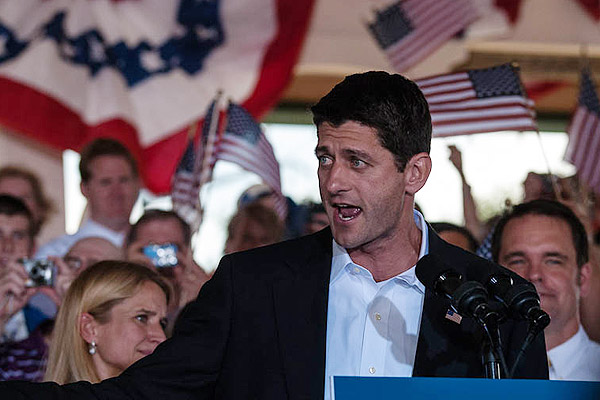
Much has been made of Paul Ryan's youthful embrace of Ayn Rand, and his continued semi-embrace of it, sans the atheism. The best piece I've read on this comes from the very smart Ed Kilgore, who notes that the writer who Ryan is most influenced by, Thomas Aquinas, was also admired by Rand, so they're arguably not as far apart as you might think.
(Side note: Ayn Rand's favorite book was the Chicago novel Calumet K, a more genteel expression of her political philosophy.)
Yale historian Beverly Gage wrote a much-discussed piece on Ryan, Rand, and the conservative canon, arguing that if liberals want the the same movement strength as conservatives, they should embrace the same idea of a small, shared canon (Rand, Hayek, von Mises, etc.):
The default mode for liberals and progressives in such situations has often been to celebrate “diversity”—intellectual, racial, sexual, and of most other sorts. In many ways this is for the best. Nobody wants to return to an era in which politics and political ideas were dominated by a handful of white men, however thoughtful. Yet we rarely pause to consider what liberals have lost by neglecting a common intellectual heritage and by attempting to win political success without a political canon.
I have a lot of problems with this zombie Allan Bloom argument, not least that it seems antithetical to the idea of liberalism, and that it's not the same as "abandoning the idea that ideas can be powerful political tools," as Gage writes. On the other hand, there's this (via):
When you “lose yourself” inside the world of a fictional character while reading a story, you may actually end up changing your own behavior and thoughts to match that of the character, a new study suggests.
Well, yeah, right. But they had interesting tests for behavioral change. Just before the 2008 election, the researchers had a bunch of students read short stories about voting:
Some versions were written in first person (“I entered the voting booth) while some were written in third person (“Paul entered the voting booth”). In addition, some versions featured a student who attended the same university as the participants, while in other versions, the protagonist in the story attended a different university.
[snip]
The results showed that participants who read a story told in first-person, about a student at their own university, had the highest level of experience-taking. And a full 65 percent of these participants reported they voted on Election Day, when they were asked later.
In comparison, only 29 percent of the participants voted if they read the first-person story about a student from a different university.
I'm hard-pressed to think of fiction that lays out a liberal philosophy in as much detail as Rand's fiction details a libertarian philosophy (not so much a conservative one, as that word represents American conservatives right now, though libertarian ideas have some influence on them). Of Mice and Men? To Kill a Mockingbird? Aspects of it perhaps, but not anything like a universal portrait. The closest comparison that comes to mind is Ishmael, which is similarly didactic but without the crackerjack plot. Some of the reason, obviously, is that liberalism is not particularly suited to a universal portrait in general, at least where it is now. But the ongoing influence of Rand, and its new emergence in the 2012 campaign, speaks to the powers of fiction, even when it comes to the often-dull sausagemaking of politics.
Photograph: monkeyz_uncle (CC by 2.0)


